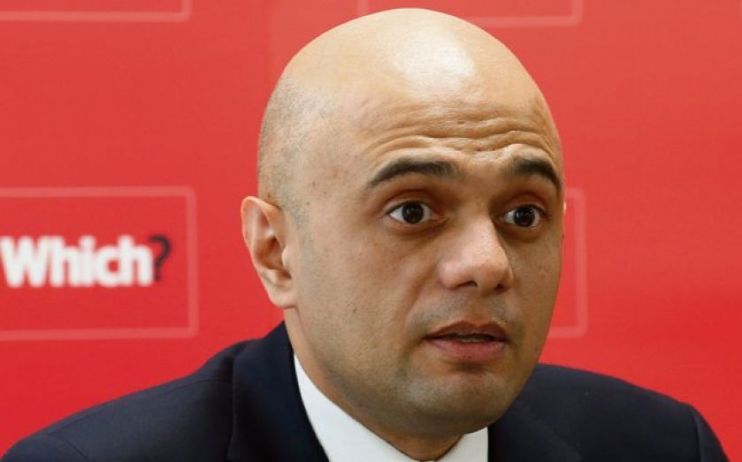Sajid Javid’s speech is one for the history books for everything but its substance

Sajid Javid’s resignation speech, delivered to a packed House of Commons yesterday, was, in truth, not very good. His language was leaden. Cliches abounded. Metaphors were mixed and invariably, to use George Orwell’s term, “dead”: so overused that they “have lost all evocative power.”
The delivery too was poor. At the critical moment, the climax of his speech, the former Health Secretary fluffed his lines. “I haven’t concluded that the problem starts at the top,” he said, stumbling, before trying again and correcting his error. Speeches are supposed to summon the highest emotions – what the Ancient Greeks called pathos. This, instead, was pure bathos: reaching for the sublime only to achieve the ridiculous.
Yet all that matters little. Powerful speeches are defined more by the moment than the material. The Greeks had a word for this too: kairos, meaning the “right, critical or opportune moment”.
However workmanly his speech and poor his delivery, Javid had kairos on his side. He spoke to a packed House of Commons and, delivering his speech from the backbenches, amongst a sea of nodding heads. Just weeks ago, many of those around him had voted against the Prime Minister in a vote of no confidence.
Since then, their numbers have clearly grown, because apres Saj, le deluge. In the hours that followed Javid’s speech, ministerial resignations flowed at extraordinary speed, wiping out all but the most ardent of the Prime Minister’s supporters. Even Nadhim Zahawi, who he appointed only yesterday, would sit him down and tell him the game was up. By the end of the day, Boris Johnson’s premiership was doomed. Late last night, a group of remaining ministers set up camp in Downing Street, led by the Chief Whip, in a final bid to force the Prime Minister from office. Even Nadhim Zahawi, appointed only a day before, was prepared to sit the PM down and tell him the game was up.
Javid’s speech, despite its limitations, will therefore now enter the pantheon of Parliamentary rhetoric. Its obvious companion piece will be the resignation of Geoffrey Howe, a former Chancellor, Foreign Secretary and Deputy Prime Minister. Again at Prime Minister’s Questions, this time in November 1990, Howe’s speech proved the undoing of Margaret Thatcher, who resigned just nine days later.
The parallels are certainly notable. Like Javid, Howe was a poor Parliamentary performer, sometimes referred to as “Mogadon Man”, a reference to a popular sleeping pill. To be attacked by Howe, the Labour Chancellor Denis Healey once noted, was like being “savaged by a dead sheep”.
Howe’s speech that November day was indeed a meandering affair, built around a rather strange metaphor that cast Thatcher as a cricket captain who had broken the bat of the Governor of the Bank of England. Whether knowingly or not, Javid’s own dull choice of metaphor – casting Johnson as the “captain” of the Conservative “team” – echoed Howe’s almost exactly.
There is however one notable difference between Howe and Javid. Not long after his speech, Geoffrey Howe retired from front-line politics. Javid – who has already been Health Secretary, Home Secretary and Chancellor of the Exchequer – will be doing no such thing. The race to replace Johnson has most certainly begun. Javid’s speech was intended not only to pull one Prime Minister down, but to instate another. For all its limitations, it almost certainly proved capable of the former. On today’s showing, it seems unlikely to have persuaded Javid’s colleagues that he is a Prime Minister in waiting.